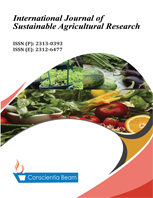Analysis of Consumer Willingness to Pay for Genetically Modified Maize Food in Swaziland
DOI:
https://doi.org/10.18488/journal.70/2016.3.1/70.1.19.28Abstract
Genetic modification has been regarded as the new techno-economic standard of the 21st century. There are a number of promised benefits that come with the technology, including that of increase in crop yield, drought tolerance, environmental friendly farming, low food prices, better taste and nutrition among others. However, the use of biotechnology in food production is one of the most controversial subjects in modern agriculture with some scientists and consumer organizations citing possibilities of GM food causing allergies and cancer in human beings among other negative environmental and ethical concerns. This study was an assessment of consumer willingness to pay for GM food in Swaziland. Data were collected across the four regions of the country, sampling 100 respondents in each region making a total sample size of 400 respondents. The respondents were primary or secondary shoppers in their households, who were above the age of 18 and have heard about GMOs. Data were analysed using SPSS version 20. The results show that there were few respondents (32%) who had objective knowledge about GMOs. However, 70% of the respondents believe that GMOs are already being sold in the local markets. A binary logistic regression model was used to analyse willingness to pay for GM maize meal. The variable that were found to be affect consumers’ willingness to pay for GMO maize food were age, knowledge level, health perception, ethical perception and environmental perception about GMOs.

